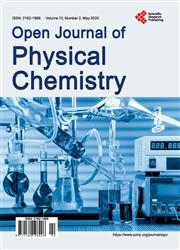Comparative Study of Physical Properties of In-Use Surfactant-Grafted Polyacrylamides for Oilfield
引用次数: 1
Abstract
Surfactant-grafted Polyacrylamide (S-PAM), as a new type of oil displacement agent in oilfield, integrates the advantages of both polymer and surfactant. The oil displacement experiments using S-PAM in multi-blocks reveal that in-use S-PAMs differ greatly from ordinary polymers and the physical properties remain unclear. This is unfavorable to production application and occupational health and safety. This research compared the physical properties of S-PAMs selected from two producing area, including specific gravity, particle size and viscosity. The compared results showed that specific gravity of Lianhua S-PAM was smaller than Haibo S-PAM; Lianhua S-PAM and Haibo S-PAM accounted for the 93.8% and 80.1% of the total amount via the particles with 40 mesh and 60 mesh; the viscosity of Lianhua S-PAM was higher than that of Haibo S-PAM in two S-PAM solutions with different concentrations.油田用表面活性剂接枝聚丙烯酰胺物性比较研究
表面活性剂接枝聚丙烯酰胺(S-PAM)是一种集聚合物和表面活性剂优点于一体的新型油田驱油剂。利用S-PAM进行的多区块驱油实验表明,使用中的S-PAM与普通聚合物有很大不同,其物理性质尚不清楚。这不利于生产应用和职业健康安全。本研究比较了两个产区的s - pam的物理性质,包括比重、粒径和粘度。对比结果表明,联华S-PAM的比重小于海波S-PAM;联华S-PAM和海博S-PAM分别占40目和60目颗粒量的93.8%和80.1%;在两种不同浓度的S-PAM溶液中,联华S-PAM的粘度均高于海波S-PAM。
本文章由计算机程序翻译,如有差异,请以英文原文为准。
求助全文
约1分钟内获得全文
求助全文

 求助内容:
求助内容: 应助结果提醒方式:
应助结果提醒方式:


